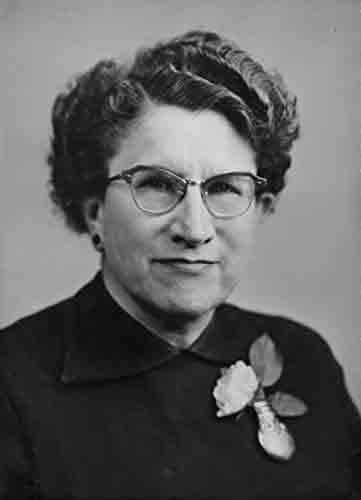



I entered the University in ‘49 and took a liberal arts education. I avoided, like the plague, anything having to do with math, which I wish I didn’t, in retrospect, because I probably had some talent in that regard that I didn’t even know I had. Of course, I took philosophy and English and geology–and German. I took German four years and managed to pass two of them. The reason I took German was I thought it was the closest thing to Latin, and I had done moderately well in Latin in high school. The German professor I had had come over from Germany, but just before the war. And it turns out he was a rabbi. He told us a lot about the Jewish religion and about Germany. And while I didn’t learn much German from him, I got a real sense of him, the man, who was a wonderful man, and to some extent what was going on in Germany.
My interest right from the get-go was in economics and political science, which I think is really one field, not two. John Stewart Mill, I think it was, called it “political economy,” and most everybody else did too. In all my years of UVM, I had two professors who really made an impression on me. Neither one, I might add, made tenure, which I’m not sure what that says, but we should think about it.
One was a man named Jim Peterson in economics, and I learned more economics in one class with him than I learned with five with anybody else. And the other guy was in political theory, was a man named Bill Steele. I don’t know that Bill ever said what political version he came from, but he was a brilliant teacher.
In the beginning I moved way to the right. I read Ludwig von Mises’ Human Action. You know, sort of the bible of fascism is what it was. But a scholarly work. God, it was 600 pages. I don’t think I’ve read a book of 600 pages since then.
My economics professor, Jim Peterson, he was very liberal, very, very smart. God, he couldn’t have been more than 24, 5 years old, as I think of it, at the time. I became passionate about economics and economic theory. I was invited to his house once or twice. I think his wife would have said that she was a communist. I may be wrong on that. He was not. He called himself a “scientific positivist.” I learned a lot about economic theory, and I became a full-blown Keynesian and still am.
Then my senior year I took a course in political theory. There was about 12 of us in the class, all interesting people, men and women. I became as interested in that aspect of why people do what they do politically and so on, and Steele did a wonderful job. He would go over each of the great political philosophers, convince us completely that this guy really knew what he was talking about, and then destroy the guy’s arguments as best he could. That’s not a nice word to use with Bill because he was not a destroyer. He was a builder of people.
I was just very slowly moving to what some people call “the left.” I mean toward a populist, humanist orientation. But I wasn’t sure what I was supposed to be.
I got out of college too fast. I should have had to use four more years to somehow integrate what I knew with the world I was going to have to deal with. And I think education today is a terrible waste of money for an awful lot of people because of the way it’s designed. People become famous, they become rich, and they build a building. They need more buildings like we need more wars. I’m overwhelmed at the University, the number of buildings. They need to learn how to take their education and create educational settings, dynamic settings, move people around, put them in different cultures, if you will, or at least different parts of the country, or at least different parts of Vermont.
I know, when I was at UVM, I knew one black guy. And when I think of how few black people . . . . I didn’t know anybody of Spanish origin other than from Spain. We were all a bunch of white guys, and we thought we were going to run things forever.
The women did very well in Vermont up against very tough odds. Consuelo Northrup Bailey was Lieutenant Governor. Had she been a man, she would have been elected governor in a walk when she left. I didn’t know her. But the fact is, almost into the ‘70s, a woman was supposed to be there with a notebook and a pencil, and the men, white guys with white shirts, were supposed to make the decisions.
And what’s so interesting about all this is the country itself is going through that kind of metamorphosis right now, and I think that the anger that is directed toward government, toward so-called liberals, people who want change . . . . I think a lot of that comes from frustration that, “Hey, we’re no longer in charge. We don’t run things. We have influence, but we don’t run things.” And white guys been running things for a long time, in Vermont and everywhere else, and it seems so natural. But if you really look at what’s going on in the country, I’m glad it’s not going to be that way anymore, because people will be judged more or less on their merit. And I hope people can come to understand that (chuckle) under our skin we all got the same DNA practically. So there you go.
